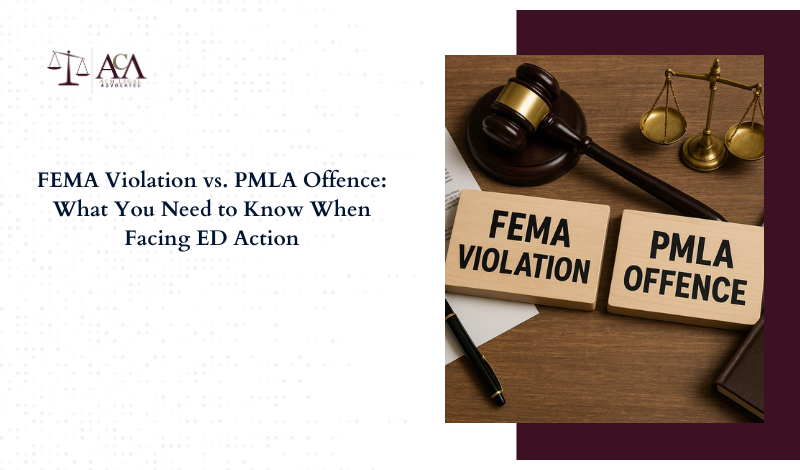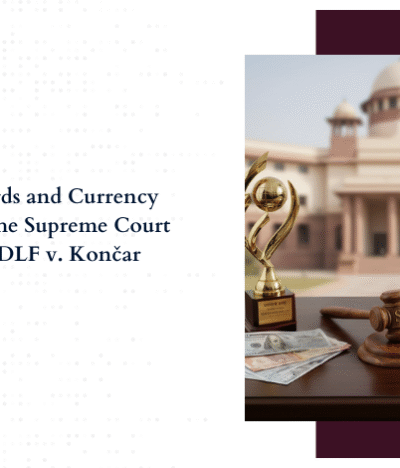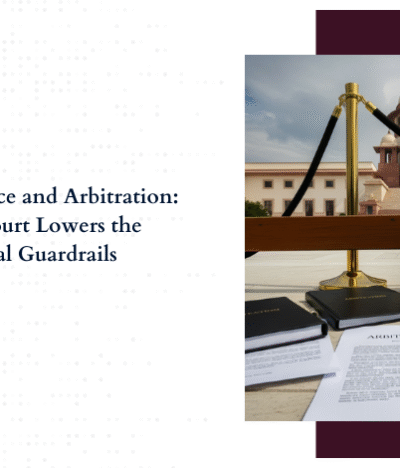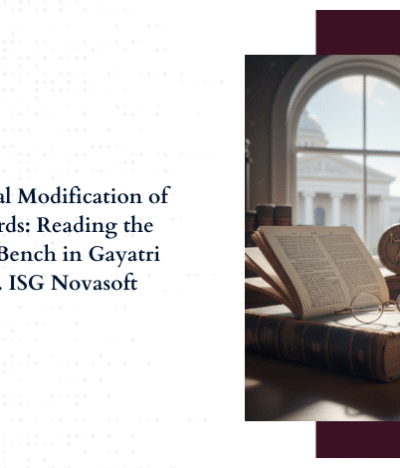1.Statutory Nature: Civil vs. Criminal
- FEMA (Foreign Exchange Management Act, 1999) is a civil regulatory statute, addressing foreign‑exchange contraventions via administrative adjudication and penalties under Section 13. Proceedings are conducted by designated Adjudicating Authorities; no criminal prosecution emerges unless prosecution is initiated after adjudication under Section 13(1B).
- PMLA (Prevention of Money Laundering Act, 2002) is a criminal statute targeting money‑laundering. Investigation, arrest, prosecution and confiscation powers lie with the ED and Special PMLA Courts, post‑cognisance of predicate offences and tracing unlawful proceeds.
2.ED’s Investigative Powers under Each Act
- Under FEMA, ED may summon under Section 37(3), conduct searches, seize documents or equivalent property under Section 37A, and impose civil penalties—no power of arrest.
- Under PMLA, ED possesses criminal investigative authority: it can arrest, provisionally attach property under Section 5 (later confirmed by Adjudicating Authority), prosecute, and seek permanent confiscation via Special Courts.
3.Predicates, Jurisdiction and Overlap
- FEMA violations do not require a predicate offence; they concern regulatory control over foreign exchange. ED’s jurisdiction arises upon detection of contraventions.
- In contrast, PMLA jurisdiction is contingent upon the existence of a predicate offence (e.g. corruption, fraud) that generates proceeds of crime. Without a predicate offence, ED under PMLA lacks jurisdiction—even if parallel CBI/FEMA proceedings exist.
Overlap may occur where a FEMA violation also forms part of a predicate offence under PMLA. In such cases, ED may initiate parallel proceedings—civil (FEMA) and criminal (PMLA)—subject to specific legal steps.
4.Burden of Proof & Procedural Protections
- Under FEMA, burden lies with the respondent to prove non‑contravention; penalties are administrative. There is no reversal of burden akin to PMLA.
- Under PMLA, once ED alleges proceeds of crime, burden shifts to accused to prove lawful origin (Section 24). Moreover, courts presume interconnected transactions are tainted (Section 23). ED’s criminal process includes arrest, summons under Section 50, and evidence including statements made to AO are admissible.
5.Consequences: Penalties, Confiscation & Convictions
- FEMA penalties may extend up to three times the contravention value, plus daily fines and recovery procedures—strictly civil in nature. No imprisonment unless prosecution is triggered post‑adjudication.
- PMLA sanctions include rigorous imprisonment (3‑7 years or up to 10 for narcotics-linked offences) and confiscation of tainted or equivalent assets under Sections 5–9.
6.Rights & Remedies in Investigations
- FEMA matters may be challenged through adjudication hearings, appeals to appellate tribunals, and writ petitions under administrative law.
- PMLA matters enable recourse via the PMLA Appellate Tribunal, High Court and Supreme Court. Notably, in May 2025, the Supreme Court held that PMLA‑accused have a right to a complete list of all investigative materials, enhancing fairness given the reversal of burden. Judicial scrutiny of ED’s jurisdiction—especially absence of predicate offence—has been affirmed by courts including Madras HC and Delhi HC to limit agency overreach.
Practical Implications for Clients in Delhi
| Issue | FEMA | PMLA |
| Nature of offence | Civil | Criminal |
| ED powers | Summons, seizures, penalties | Summons, arrest, attachment, prosecution |
| Arrest allowed? | ❌ | (Section 19), with conditions |
| Predicate offence required? | ❌ | ✅ |
| Burden of proof | Respondent | Accused (reverse burden) |
| Penalties | Civil fines | Imprisonment and confiscation |
| Adjudication forum | Administrative tribunal/Adjudicating Authority | Special Court → Tribunal → HC/SC |
| Access to materials | Not guaranteed | Yes—SC mandate list of all ED‑gathered materials. |
Legal Strategy to Avoiding Pitfalls
- Identify the legal regime: Evaluate whether the matter is being pursued under FEMA, PMLA, or both.
- Scrutinise ED’s jurisdiction under PMLA: Challenge initiation where no valid predicate offence exists.
- Protect procedural rights: In PMLA cases, insist on receipt of all evidence; in FEMA, ensure proper adjudication and opportunity to respond.
- Strategic representation: Engage counsel early, particularly in PMLA cases, to negotiate summons, resist undue arrest, and prepare for burden‑shift challenges.
- Parallel defence in dual cases: When both FEMA and PMLA proceedings exist, ensure legal alignment—civil appeal strategies under FEMA and criminal defences under PMLA are coordinated.
Conclusion
While both FEMA and PMLA fall under the Enforcement Directorate, they entail substantially different legal paradigms. FEMA operates as a civil regime penalising foreign-exchange violations; PMLA is a criminal anti‑money-laundering statute with broader enforcement powers, including arrest and property confiscation. Clients in Delhi must engage experienced ED financial‑crime lawyers to navigate overlap, protect rights, and craft defence strategies in both regimes.






